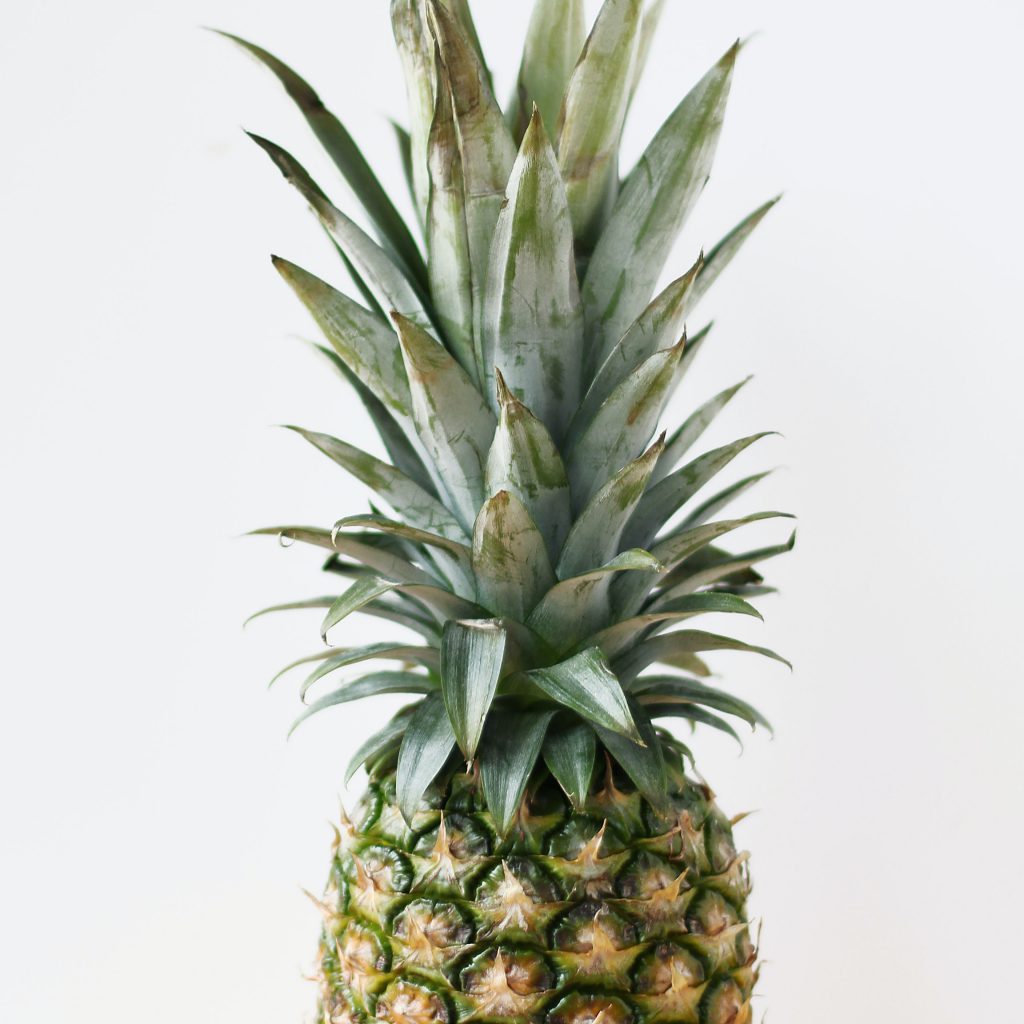
Pineapple Packs in More Vitamin C per Cup than Citrus Fruits
When it comes to nutrients, vitamin C is one of the most well-known. From strengthening the immune system to improving your mood to reducing the risk of heart disease, this vitamin is a powerhouse. Even better? No expensive supplements are needed here – your daily dose of vitamin C, or ascorbic acid, can be obtained through delicious and affordable fruits and vegetables like pineapple. This tropical fruit contains more vitamin C per serving than citrus fruits like grapefruits and oranges, making it an excellent choice for boosting your daily nutrient consumption. Read on to learn more about the value of vitamin C and how to add some more pineapple power to your diet.
Boosting Your Immune System
For those who are incredibly active, Harvard Health says, an additional 200mg of vitamin C can reduce the risk of getting a cold. The nutrient has also been shown to stimulate the production of certain white blood cells, which may help fight off viruses. However, keeping your immune system strong is more about consistently consuming vitamin C – not just taking a high dose when you start to feel sick.
However, a shortage of the vitamin can make you more susceptible to certain illnesses. According to the US National Health and Nutritional Examination Survey, 39% of adults in the US don’t meet the average requirement for vitamin C. Thankfully, supplements aren’t required to boost your intake – instead, fruits like pineapple contain this vital nutrient in large volumes, so you can ensure you’re always getting enough.
Your Daily Serving of Vitamin C
As shoppers look to add more nutrients to their diets during the COVID-19 pandemic, they’re turning to citrus fruits for vitamin C. “Oranges are on a remarkable growth path,” said Jonna Parker of IRI in an interview with Produce News. “Since mid-March, orange sales has been up around 60 percent each week year-over-year. I suspect this is directly related to the versatility of oranges as a snack, side or in smoothies, as well as the health halo it enjoys among consumers, particularly related to building the immune system.”

However, grocery shoppers shouldn’t feel restricted to simply citrus. In fact, one cup of pineapple contains 78.9mg of vitamin C – more than a serving of mango, kiwi, grapefruit, and even orange. That means a single cup of this tropical fruit can fulfill the Recommended Dietary Allowance (RDA) for women, which falls at 75mg per day and comes close to fulfilling the RDA for men, 90 mg per day, as well.
Pineapple is also easy to add to your everyday diet. Whether frozen for superfood smoothies, grilled, added to oatmeal, or eaten plain, there are plenty of ways to enjoy this tropical fruit. Plus, it’s also full of other valuable nutrients like magnesium, vitamin A, and fiber, all of which help keep your body strong and healthy.
Vitamin C’s Role in Your Body
Vitamin C is a true multitasking nutrient: it’s responsible for repairing and developing body tissues, helping your body absorb iron, and aiding in collagen synthesis. A deficiency in the vitamin can mean wounds heal less readily and may increase fatigue. Further, as an antioxidant, it’s crucial in protecting your body against free radicals, which can damage molecules including proteins and nucleic acids.
Various studies have demonstrated a link between higher vitamin C intakes and lower risk of cardiovascular disease, while maintaining a sufficient daily intake of the vitamin has been shown to promote healthy brain aging. Dermatologists also frequently recommend vitamin c for its effects on collagen growth, which helps repair damage and dry skin and may reduce wrinkling.
Overall, vitamin C’s value is undeniable and, thanks to pineapple, it’s easy to reach your recommended daily intake with a wide variety of creative, nutritious dishes. Plus, with the fruit’s natural sweetness, you can satisfy your sweet tooth at the same time! It’s truly a delicious way to keep your body and immune system strong and healthy.
If you’d like more information about pineapple and ideas for tropical recipes, be sure to sign up for our newsletter today.
Resources
Signs You’re Low on Vitamin C – WebMD
Immunity in Depth – Oregon State University
Vitamin C – Oregon State University
Can Vitamin C Prevent a Cold? – Harvard Health
The 4 Best Vitamins for Your Skin – Healthline
Vitamin C – National Institutes of Health
FoodData Central – USDA
The American Nutrient Gap – Medtech Boston
Medical Disclaimer: The information, including but not limited to, text, graphics, images and other material contained on this website are for informational purposes only. This information is not intended to be a substitute for professional medical advice, diagnosis or treatment. Always seek the advice of your physician or other qualified healthcare provider with any questions you may have regarding a medical condition or treatment and before undertaking a new health care regimen, and never disregard professional medical advice or delay in seeking it because of something you have read.
More information can be found via resources at National Institutes of Health.


